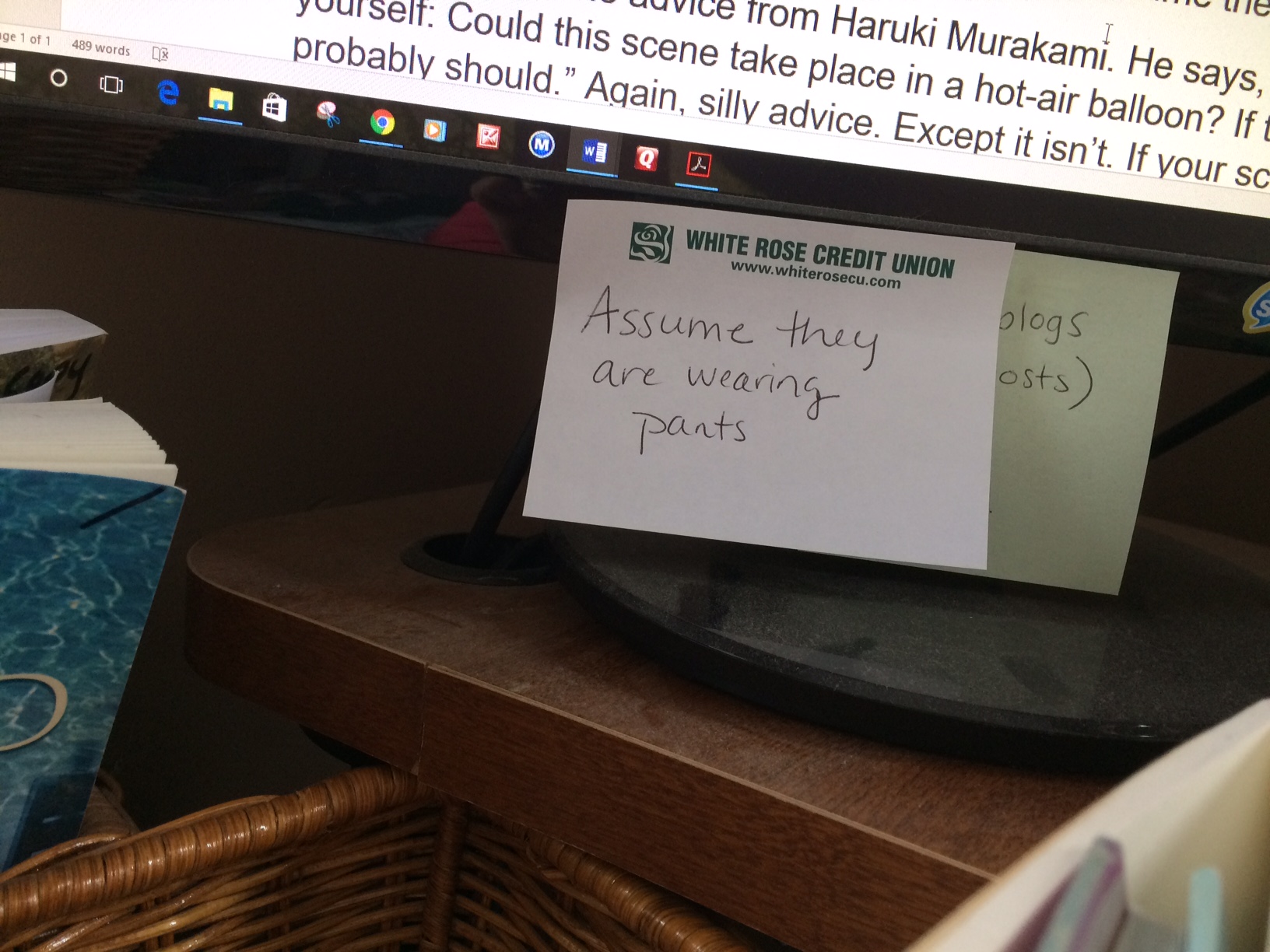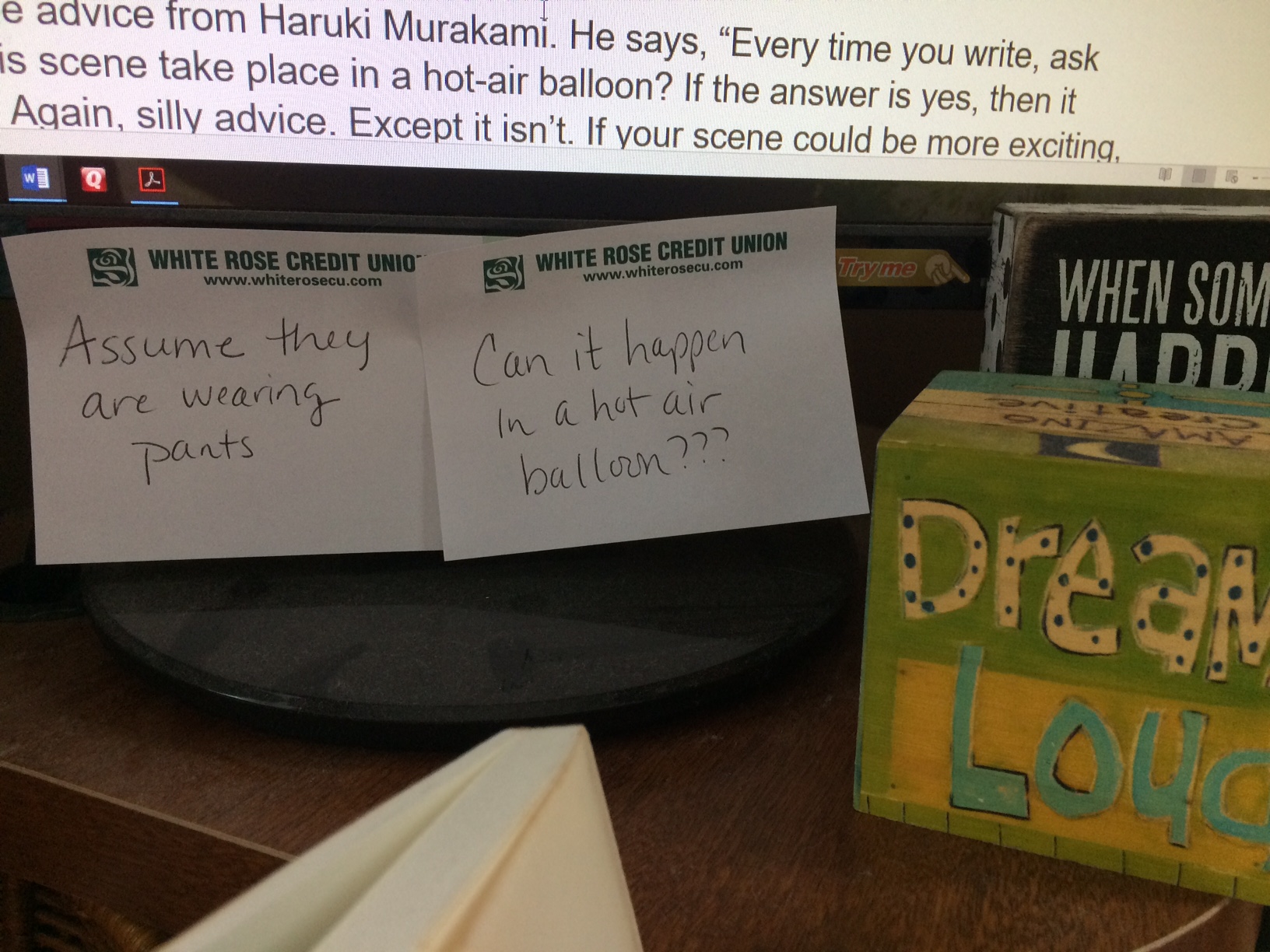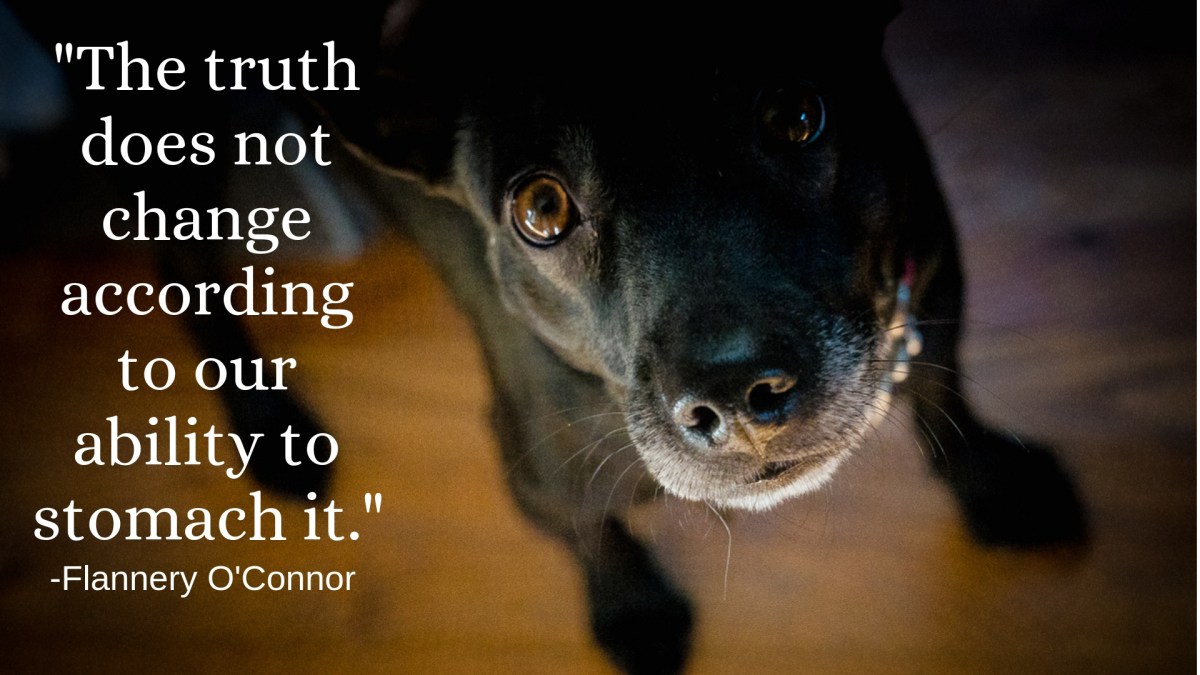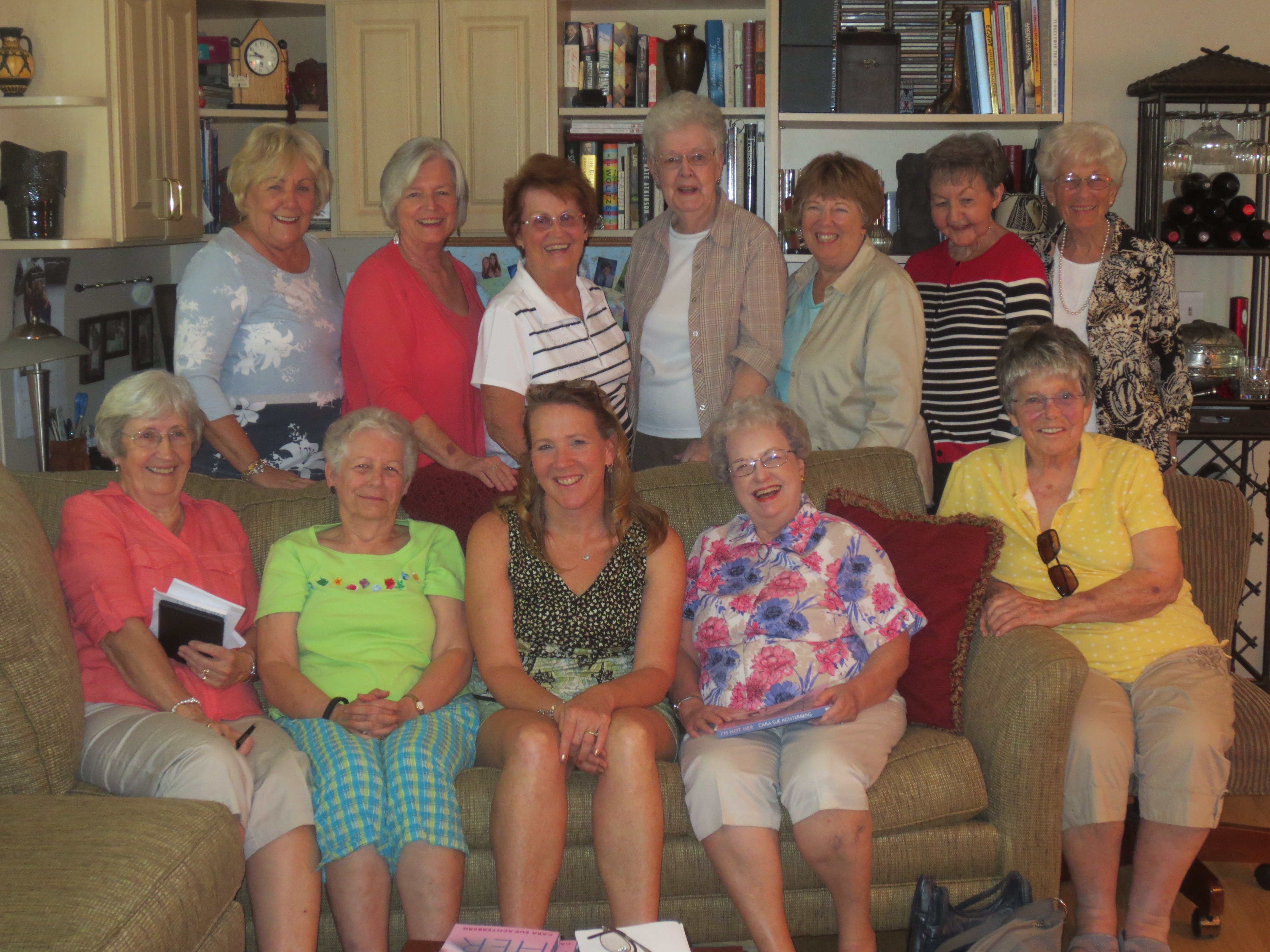My son, who is also a writer, posted an article on Facebook that listed the most important writing advice from famous authors to young writers. It wasn’t what you’d expect. This was just off the cuff, what’s-your-best-advice-to-young-writers stuff. The advice was funny and seemed almost nonsensical. Until you thought about it. Take Zadie Smith’s advice:
Whenever you introduce a character, you don’t have to specify that they are wearing pants. Most readers will just assume that they are wearing pants unless you say otherwise.
Silly, right? Only it’s not. Because many times we writers think we need to spell out everything for our readers. We don’t trust them to use their own brains. Writing that holds a reader’s hand is exhausting. It gets bogged down in minutae. And truly, it’s kind of insulting to the reader.
I know I’m as guilty as anyone when it comes to stating the obvious. We want to be completely clear. (See what I did there? Ugh. Redundant, right? Like I can’t assume that when you read the word ‘clear’ you knew that it means completely clear. What else would it be? Something is either clear or not clear. Nevermind that the entire sentence is unnecessary as it’s only expounding on the previous sentence which wasn’t that complicated.)
Taping a note to my desk right now that says, “Assume they are wearing pants.”

Then there was the advice from Haruki Murakami. He says,
Every time you write, ask yourself: Could this scene take place in a hot-air balloon? If the answer is yes, then it probably should.
Again, silly advice. Except it isn’t. If your scene could be more exciting, then it should be. Don’t be satisfied with just good enough. Can it happen in a hot air balloon? Great question!

And no-less than George Saunders gives this advice:
When I first started getting some attention, stories published here and there, Don DeLillo took me aside and gave me some advice that ended up being very formative for me. He said, ‘George, if you keep breaking into my home to use my swimming pool, I’m going to have to call the police.’ I always thought that was really wise.
He really didn’t go where you thought he’d go with that, did he? But he has a point. None of this advice means diddily-squat, really. What works for some does not work for others. Don’t try to copy anybody else or be anybody else or swim in anybody else’s pool.
It’s very tempting to get wrapped up in learning the craft and studying other writers and reading every blog/website/article/book out there on writing, those things are important but in the end there’s only one thing that will make you write better—writing.
Put something down on paper. Hone it to the best of your ability. Then write something else. And don’t take others, or yourself, too seriously.












